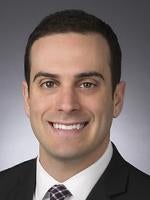On May 26, 2021, a Sixth Circuit panel rejected challenges by numerous municipalities to a 2019 order by the Federal Communications Commission (FCC) that most “in kind” (non-cash) contributions required by cable franchisees qualify as franchise fees subject to the federal Cable Act’s 5% cap.
In City of Eugune v. FCC, the three-judge panel held that the FCC’s Third Report and Order (Third Order) largely adopted a proper statutory interpretation of Section 621 of the Cable Act (47 U.S.C. § 541 et seq.) with respect to in kind exactions. The Court granted the petitions in part, however, on one aspect of the Third Order addressing the standard for determining monetary value of in kind contributions.
The FCC’s Third Order
Building on a series of prior orders interpreting Section 621 of the Cable Act, the FCC’s August 2019 Third Order adopted new rules that further clarified what constitutes a “franchise fee” subject to the Act’s 5% franchise fee cap (47 U.S.C. § 542(b)), and also when federal law preempts state and local requirements of cable operators. Among other things, the Third Order:
-
Held that most cable-related in kind exactions required by local franchising authorities (LFAs) are indeed “franchise fees” which, together with monetary fees, are capped at 5% of a cable provider’s gross annual revenues derived from operation of the provider’s cable system to provide cable services;
-
Adopted the “mixed use” rule that bars LFAs from using their franchising authority to regulate the provision of most non-cable services (such as broadband Internet access service, certain business data services, WiFi, and VoIP service), even when delivered via “mixed-use” systems over a cable system along with cable service;
-
Held that the Cable Act preempts any state or local regulation of a cable operator’s non-cable service that is inconsistent with Section 621; and
-
Extended its ruling on LFA actions to state, rather than just local, franchising authorities.
Various municipalities and franchising authorities alleged that the FCC’s Third Order incorrectly interpreted the Cable Act and was arbitrary and capricious under the federal Administrative Procedure Act. The City of Eugene, Oregon, also argued that the FCC improperly applied its mixed-use rule to a fee the city imposed on broadband service provided by a cable operator.
The Sixth Circuit Decision
The Sixth Circuit panel rejected almost all of the petitioners’ challenges and affirmed that “noncash cable-related exactions (including I-Net exactions) that the Act merely permits a franchising authority to impose are franchise fees under § 542(g) and thus count toward the five-percent cap.” The Court held that the FCC had “amply explained the statutory bases for that interpretation,” and the petitioners’ arguments were “insubstantial” and “without merit.”
The Court further rejected the petitioners’ invocation of a “reliance interest” in in kind contributions. The Sixth Circuit panel explained that as far back as 2007, when the FCC issued its Second Order, the Commission advanced largely the same interpretation of franchise fee (with respect to noncash cable-related exactions), such that “[f]ourteen years later, nobody can claim unfair surprise.” The Court therefore made clear that the Cable Act’s 5% cap “is a ceiling, below which franchisors should ‘consider’ the utility of each cost they choose to impose on cable operators and (by extension) subscribers.”
The Sixth Circuit, however, observed that the petitioners “have a point” concerning the standard by which noncash, cable-related exactions should be assigned a monetary value for purposes of counting them toward the 5% cap on franchise fees. In the Third Order, the FCC had said that such exactions should be assigned their “market value” for purposes of the 5% cap, which according to the Commission, was easily ascertainable using cable operators’ rate cards. The FCC had reasoned that, without these exactions, LFAs would have no choice but to pay the market rate for services they need from a cable operator or another provider.
But the Sixth Circuit found the FCC had “its payors mixed up,” because cable operators – not LFAs –“pay” franchise fees. The Court held that an LFA’s “replacement cost is therefore beside the point. And a cable operator does not ‘pay’ the hypothetical profit that it would have obtained had it sold its services to a paying customer.” Because the Cable Act “provides no reason to treat cash and noncash exactions differently,” the Court held that non-cash cable-related exactions “should be assigned a value equal to the cable operator’s marginal cost in providing them.”
Regarding the FCC’s “mixed use rule,” the Sixth Circuit held that the City of Eugene’s 7% broadband service fee was not a franchise fee subject to the 5% cap, because it was not imposed based on an operator’s provision of cable service. But the Court held the fee was inconsistent with, and thus preempted by, 47 U.S.C. § 544(b)(1), which prevents LFAs from establishing requirements for information services as a condition of obtaining a franchise. The Court held Eugene “circumvented that limitation when it imposed the same [broadband] fee on a cable operator by means of the City’s police power.” According to the Court, the City’s broadband service fee was “merely the exercise of its franchise power by another name.”
Next Steps
The LFA petitioners likely will move for en banc review of parts of the panel decision. If they do, the petition would be due by July 12, 2021. If the Court denies a petition for rehearing, the parties would then have 90 days from denial of the petition to seek review in the U.S. Supreme Court.





 />i
/>i
